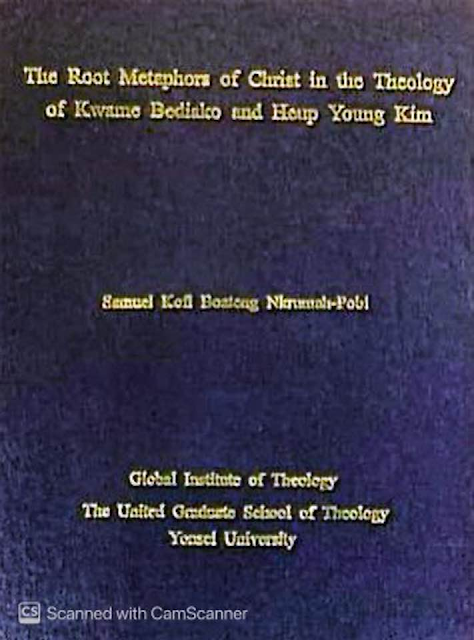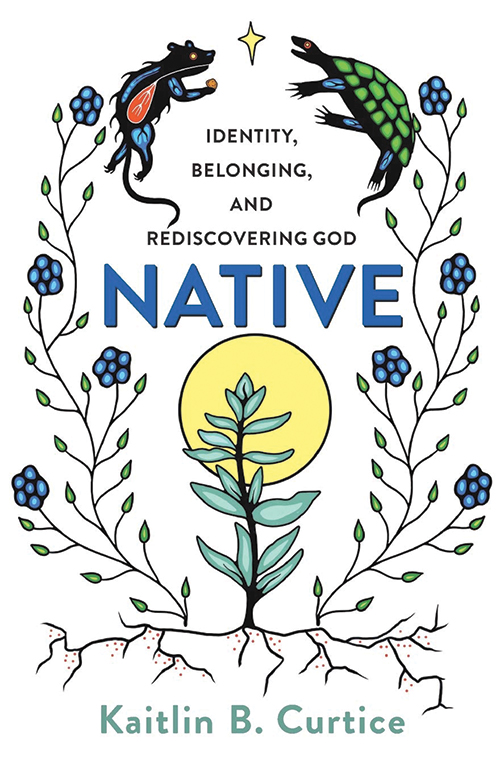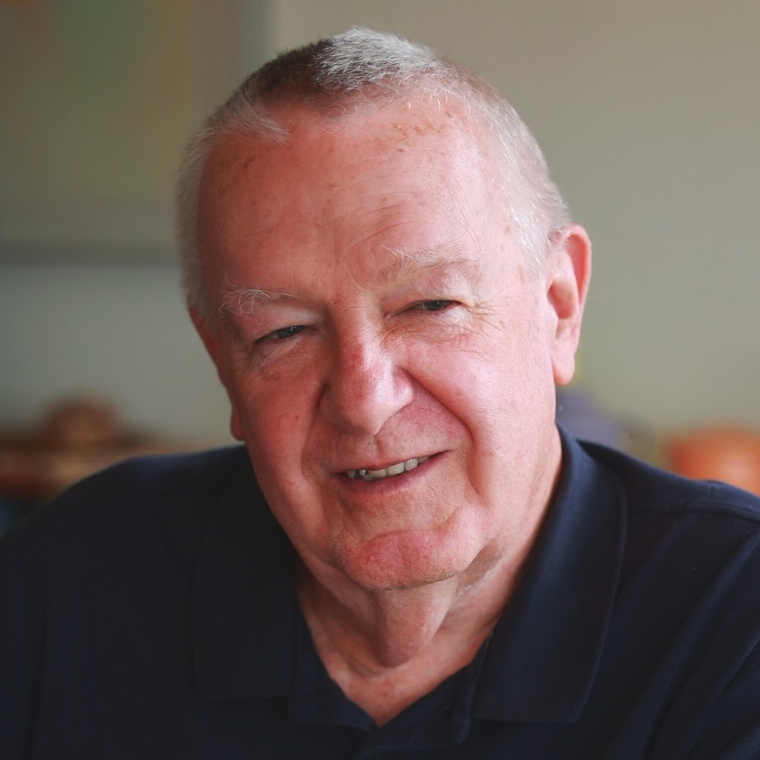바이셰시카 학파
| 힌두교 |
|---|
바이셰시카 학파(산스크리트어: Vaiśeṣika, 팔리어: Visesikā, 영어: Vaisheshika)는 힌두교의 정통 육파철학 중의 하나로, 승론(勝論)으로 한역(漢譯)되어 승론 학파(勝論學派)라고도 불린다. 전통에 따르면, 바이셰시카 학파는 기원전 1세기경에 카나다(Kanada: 우르카 또는 카나브주라고도 한다)에 의해 성립되었다고 한다. 그러나 창시자 카나다의 이름으로 전해지는 《바이셰시카 수트라》는 이보다 후대에 성립된 것으로 여겨지고 있다.[1]
바이셰시카 학파는
- 실체[實, dravya, substance] ·
- 성질[德, guṇa, quality] ·
- 운동[業, karma, activity] ·
- 보편[同, sāmānya, generality] ·
- 특수[異, viśeṣa, particularity] ·
- 결합[和合, samavāya, inherence]의
여섯 가지의 원리 또는 범주[六句義]를 세워서 현상계, 즉 우주의 여러 사물의 구성을 밝힌다. 그리고 이들 여섯 원리 중 첫 번째 원리인 실체에는
아홉 가지가 있다고 말한다.[2]
명칭[편집]
학파의 명칭인 바이셰시카(Vaiśeṣika)는 특수 또는 구별을 뜻하는 비셰사(viśeṣa)라는 낱말에서 유래한 것으로, 이 학파가 세계 즉 현상계를 실체[實, dravya, substance] · 성질[德, guṇa, quality] · 운동[業, karma, activity] · 보편[同, sāmānya, generality] · 특수[異, viśeṣa, particularity] · 결합[和合, samavāya, inherence]의 여섯 가지의 원리 또는 범주[六句義]로 구별하여 설명하기 때문에 생긴 명칭이다. 그러나 중국에서는 바이셰시카(Vaiśeṣika)라는 말을 수승(殊勝) 즉 '뛰어나다'는 뜻으로 이해하였고 이에 따라 승론(勝論)이라 불리고 있다.[3]
개요[편집]
바이셰시카 학파의 교의 또는 철학은 자이나교의 영향을 받아 실재론적인 경향이 강하며 브라만교의 신학적 요소보다도 자연철학적인 색채가 짙다.[1] 모든 사물을 실체와 속성으로 나누고 이를 실체 · 성질 · 운동 · 보편 · 특수 · 결합의 6개 원리 또는 범주(範疇: 句義)로 설명하였다.[1]
실체로는 자연 · 생물 등 우주의 만물을 구성하는 요소인 흙 · 물 · 불 · 공기 · 아카사(공 · 허공 · 에테르) · 시간 · 공간 · 아트만(我) · 마나스(意)의 아홉 가지가 있다.[1] 흙 · 물 · 불 · 공기는 인(因) 상태로는 원체(元體: 으뜸이 되어 더 이상 나눌 수 없는)의 미진(微塵: 미세 입자)으로서 불변이며 흙에는 향기, 물에는 맛, 불에는 색깔, 공기에는 촉감이 본래의 성질로서 화합 또는 결합한다.[1] 이것들은 극히 미세하여 감각할 수 없다. 감각의 대상이 되는 것은 그것들이 복합해서 된 결과일 따름이다.[1]
흙 · 물 · 불 · 공기의 4원소의 극미체(極微體)는 우주가 창조되기 이전에는 화합 또는 결합이 없었고 또한 아트만과 극미체의 화합 또는 결합도 없었다.[1] 그러나, 아트만에는 선업(善業)과 악업(惡業)이 잠재해 있으며 이것이 불가견력(不可見力)으로서 작용하게 되면 우주의 창조가 개시된다.[1] 그러나 창조된 세계는 일정한 기간을 지속하면 아트만의 불가견력에 의해서 4원소가 차례로 분리되어 다시금 극미체로 해체 · 분산하게 된다고 우주의 발생 · 지속 · 소멸을 설명하였다.[1]
이와 같이 우주와 인생을 설명함에 있어 물질 · 정신의 2원적 대립으로써가 아니고 또한 브라만을 유일절대로 하는 1원관(一元觀)도 아닌 다원적(多元的)인 관점에서 원소(즉, 실체) · 속성(즉, 성질 · 운동 · 보편 · 특수) · 관계(즉, 결합)의 측면으로 설명하였다.[1]
용어[편집]
바이셰시카 학파의 교의 또는 철학에서 주로 사용되는 용어들의 산스크리트어와 한글 번역어들 및 영어 번역어들은 다음과 같다.[1][2][4][5][6][7] 아래의 여섯 가지 원리 · 아홉 가지 실체 등보다 더 많은 원리 또는 실체가 있을 수 있지만, 이들 여섯 가지와 아홉 가지로 구분한 것은 바이셰시카 학파에서는 이들이 윤회를 벗어나 "영혼의 자유"(모크샤 · 해탈)에 이르기 위한 구도의 과정에서 반드시 깨우쳐야 할 필요가 있는 것들이라고 보기 때문이다. 특히 아홉 가지 실체는 실제적인 요가 수행을 통해 깨우쳐야(앎 · knowledge) 하는 것들("실체들")로, 수행 계위와 관련이 깊다. 바이셰시카 학파의 여섯 가지 원리 · 아홉 가지 실체에 대한 교의 또는 철학은 수행을 통해 실제로 깨우쳐야 하는 것들이 무엇인지를 명확히 말해준다는 점에서 의의가 있다.
여섯 가지 원리[편집]
- 여섯 가지 원리: 빠다-아르타스 (Padārthas) · 여섯 가지 범주 · 육구의(六句義) · 6가지 카테고리 · Six Categories · Six Predicables
- 원리(原理): 빠다-아르타(Padārtha) · 범주(範疇) · 구의(句義) · Category · Predicable
여섯 가지의 원리 또는 범주가 있다. 산스크리트어 파다르타(Padārtha)의 문자 그대로의 뜻은 "낱말의 의미(meaning of a word)"로 "구의(句義: 문자 그대로는 '낱말의 의미')"라는 한역은 이러한 문자 그대로의 뜻을 쫓아서 번역된 것이다. 바이셰시카 학파에서는 인식할 수 있는 것에는 이름(낱말)을 붙일 수 있다고 본다. 따라서 "낱말의 의미"라는 말은 "인식할 수 있는 것들을 그 유형(의미)에 따라 나눈 것(범주화한 것)"을 뜻한다. 영어 낱말 "프레디커블(Predicable)"의 사전적인 의미는 "주장할 수 있는(can be asserted)" 또는 "서술할 수 있는(can be predicated)"이다.
- 실체(實體): 드라브야(Dravya) · 실(實) · Substance · Eternal Reality
- 성질(性質): 구나(Guṇa) · 덕(德) · Quality · Attribute
- 운동(運動): 카르마(Karma) · 업(業) · 행(行) · Activity · Action
- 보편(普遍): 싸만야(Sāmānya) · 동(同) · Generality · Genus
- 특수(特殊): 비세사(Viśeṣa) · 이(異) · Particularity · Species
- 내속(內屬): 사마바야(Samavāya) · 화합(和合) · Inherence
아홉 가지 실체[편집]
| 고대 원소 | |||||||||||||||||||||||||||||||||||||||||||||||||||||||||||||||||||
|---|---|---|---|---|---|---|---|---|---|---|---|---|---|---|---|---|---|---|---|---|---|---|---|---|---|---|---|---|---|---|---|---|---|---|---|---|---|---|---|---|---|---|---|---|---|---|---|---|---|---|---|---|---|---|---|---|---|---|---|---|---|---|---|---|---|---|---|
| |||||||||||||||||||||||||||||||||||||||||||||||||||||||||||||||||||
- 아홉 가지 실체: 드라브야스(Dravyas) · 구실(九實) · Nine Substances · Nine Eternal Realities
- 실체(實體): 드라브야(Dravya) · 실(實) · Substance · Eternal Reality
아홉 가지의 실체들 즉 드라브야들(Dravyas · 드라브야스)이 있다.
- 흙(地): 프르트비(Pṛthvī) · 프르티비(Pṛthivī) · 지(地) · 땅 · Earth
- 물(水): 아프(Ap) · 수(水) · Water
- 불(火): 테자스(Tejas) · 아그니(Agni) · 화(火) · Fire
- 공기(空氣): 바유(Vāyu) · 풍(風) · 바람 · Air
- 아카사(空): 아카사(Ākāśa) · 공(空) · 하늘 · 허공(虛空) · 에테르 · Akasha · Ether · Aether · Æther
- 시간(時間): 칼라(Kāla) · 때 · Time
- 공간(空間): 디크(Dik) · 방위(方位) · Space
- 아트만(自我): 아트만(Ātman) · 아(我) · 영혼(靈魂) · 자아(自我) · Self · Soul
참고로, 불교에서는 아트만을 아(我)라고 한역한다. - 마나스(意): 마나스(Manas) · 의(意) · 마음 · 심(心) · Mind
참고로, 불교의 유가유식파에서는 마나스(Manas)를 의(意) 또는 말나식(末那識)이라고 한역하며, 심(心)은 제8아뢰야식의 다른 이름 중 하나이다. 윤회의 주체이며 선업(善業)과 악업(惡業)의 업력을 함장하고 있다는 면에서, 바이셰시카 학파의 아트만은 유가유식파의 제8아뢰야식, 즉 심(心)과 유사하다. 그러나, 그 구체적인 내용은 상이하다.
원소·극미체·원자[편집]
- 사대 원소(四大元素 · Four Elements)와 오대 원소(五大元素 · Five Elements)
위의 아홉 가지 실체들 중 처음 네 개의 실체들인 흙 · 물 · 불 · 공기를 사대 원소(四大元素)라고 하며, 사대 원소에 아카사를 포함시킨 처음 다섯 개의 실체들을 오대 원소(五大元素)라고 한다. 산스크리트어로는 사대 원소를 통칭할 때도 부타스(Bhūtas)라고 하고, 오대 원소를 통칭할 때도 부타스(Bhūtas)라고 한다. - 극미체(極微體): 파라마누(Paramāṇu) · 원자(原子) · Atom
각각의 복수형은 파라마누스(Paramāṇus) · 원자들 · Atoms이다. 사대 원소인 흙 · 물 · 불 · 공기가 인(因) 상태에 있을 때는 더 이상 나눌 수 없는 미진(微塵: 미세 입자)들이 되는데 이들을 파라마누스(극미체들 또는 원자들)라 한다.
같이 보기[편집]
참고 문헌[편집]

 이 문서에는 다음커뮤니케이션(현 카카오)에서 GFDL 또는 CC-SA 라이선스로 배포한 글로벌 세계대백과사전의 내용을 기초로 작성된 글이 포함되어 있습니다.
이 문서에는 다음커뮤니케이션(현 카카오)에서 GFDL 또는 CC-SA 라이선스로 배포한 글로벌 세계대백과사전의 내용을 기초로 작성된 글이 포함되어 있습니다.- 김사업 (1989). 《제칠말나식의 성립과 그 체성 연구》. 동국대학원 불교학과 석사학위논문.
- (영어) Bernard, Theos (1947).《Hindu Philosophy》. Philosophical Library, New York.
- Chattopadhyaya, D. (1986). 《Indian Philosophy: A Popular Introduction》 (영어). People’s Publishing House, New Delhi. ISBN 81-7007-023-6.
- Radhakrishnan, S. (2006). 《Indian Philosophy, Vol. II》 (영어). Oxford University Press, New Delhi. ISBN 0-19-563820-4.
각주[편집]
- ↑ 가 나 다 라 마 바 사 아 자 차 카 종교·철학 > 세계의 종교 > 힌 두 교 > 힌두교 > 힌두교 전사(前史) > 바이셰시카 학파, 《글로벌 세계 대백과사전》
"바이셰시카 학파: Vaisheshika學派 승론(勝論)으로 한역(漢譯)된다. 기원전 1세기경에 성립되었다고 하나 창시자 카나다(우르카 또는 카나브주라고도 한다)의 이름으로 전해지는 <뱌이셰시카 수트라>는 약간 후대의 것으로 생각된다. 자이나교의 영향을 받아 실재론적인 경향이 강하며 바라문교의 신학적 요소보다도 자연철학적인 색채가 짙다. 모든 사물을 실재와 속성으로 나누고 이를 실(實)·덕(德)·업(業)·동(同)·이(異)·화합(和合)의 6개 범주(範疇:句義)로 설명하였다. 실체는 실구의(實句義)로서 대표되며 또한 자연·생물의 두 세계를 구성하는 요소인 땅·물·불·바람·하늘·때·방향·아(我)·의(意)로 나뉜다. 땅·물·불·바람은 인(因) 상태로는 원체(圓體)의 미진(微震)으로서 불변이며 땅에는 향기, 물에는 맛, 불에는 색깔, 바람에는 촉감이 본래의 덕으로서 화합한다. 이것들은 극히 미세하여 감각할 수 없다. 감각의 대상이 되는 것은 그것들이 복합해서 된 결과일 따름이다. 땅·물·불·바람의 4원소의 극미체(極微體)는 우주가 창조되기 이전에는 결합이 없었고 또한 아트만과 극미체의 결합도 없었다. 그러나, 아트만에는 선업(善業)과 악업(惡業)이 잠재해 있으며 이것이 불가견력(不可見力)으로서 작용하게 되면 우주의 창조가 개시된다. 그러나 창조된 세계는 일정한 기간을 지속하면 아트만의 불가견력에 의해서 4원소가 차례로 분리되어 다시금 극미체로 해체, 분산하게 된다고 우주의 발생·지속·소멸을 설명하였다. 이와 같이 우주와 인생을 설명함에 있어 물질·정신의 2원적 대립으로써가 아니고 또한 브라만을 유일절대로 하는 1원관(一元觀)도 아닌 다원적(多元的) 면에서 원소·속성·관계의 측면으로 설명하였다." - ↑ 가 나 동양사상 > 동양의 사상 > 인도의 사상 > 정통바라문 계통의 철학체계 > 바이셰시카 학파, 《글로벌 세계 대백과사전》
"바이셰시카 학파: Vasesika 學派 바이셰시카 학파의 개조(開祖)는 카나다(별명 울루카, 전 150 ? ∼전 50 ?)라고 하는 사람이다. 기원 50∼150년경에 이 학파의 근본 경전인 <바이셰시카 슈트라>가 편찬되었다. 바이셰시카 학파의 한역(漢譯)으로서는 <승론(勝論)>·<위세사(衛世師)>·<폐세사가(吠世史迦)> 등이라 쓴다. 이 학파는 우리들의 지식을 성립시키는 근거로서는 직접 지각(直接知覺, 現量)과 추론(推論, 比量)만을 인정한다. 여러 철학파가 일반적으로 성전의 권위를 인정하고 있는 데 대하여, 이 학파는 성전에서 얻는 지식을 추론에 의하여 얻어지는 지식의 일종에 불과한 것이라고 하여 독립된 지식근거로는 인정하지 않는다. 또 어상주론(語常住論)을 배척한다. 일반적으로 언어와 의미와의 결합관계는 편의적·습관적이어서 선천적 혹은 항구적인 것은 아니라고 한다. 여하한 지식도 전부 경험으로부터 생겨난 것이라고 주장한다. 이 학파는 실체·성질·운동·보편·특수·내속(內屬:實·德·業·同·異·和合)이라고 하는 여섯 가지의 원리(原理:句義)를 세워서 현상계의 여러 사물의 구성을 밝힌다. 실체로는 지(地)·수(水)·화(火)·풍(風)의 4원소(元素=四大)와 허공(虛空)과 시간과 방위(方位)와 아트만(我)과 의(意)라는 아홉을 내세우고 있다. 이 4원소에는 각각 성질이 다른 무수한 원자(原子)가 있다. 원자는 단순미세한 것으로 구체(球體)를 이루고 있어 불멸이다. 성질로서는 색(色)·향(香)·미(味)·가촉성(加觸性, 觸)·수(數)·양(量)·별이성(別異性, 別體)·결합(結合, 合)·분리(分離, 離)·저쪽(彼體)·이쪽(比體)·지각작용(知覺作用,覺)·쾌감(快感,樂)·불쾌감(不快感, 苦)·욕구(欲求, 欲)·혐오(嫌惡, 瞋)·의지적 노력(意志的 努力, 勸勇)이라는 17가지를 인정한다. 운동으로서는 상승·하강·수축·신장·진행의 다섯 가지를 인정한다. 보편과 특수와는 서로 대립하는 것이다. 최상의 보편은 유성(有性)인 것이요, 이에 반하여 극한에 있어서의 특수(特殊)는 원자(原子)속에 있어 보편을 포함하지 않는다. 유성(有性)과 극한(極限), 특수와 중간에 있어서 표준을 세우는 방법에 따라서 동일물(同一物)이 보편으로도 되며, 또한 특수로도 된다. 그런데 성질과 운동, 보편과 특수는 본래 불상리(不相離)인 것으로서 실체에 내속(內屬)한다. 따라서 이 내속이라고 하는 관계를 독립된 원리로 간주한다. 이것은 보편도 아니며 특수도 아니다. 이 학파에 의하면 <베다 성전>은 일단 가치가 있는 것이지만, 베다의 내용을 쫓아서 행동할 것 같으면 다만 과보(果報)로서 생천(生天)을 가져오게 할 뿐이고 윤회(輪廻)의 범위를 벗어날 수가 없다. 해탈하기 위해서는 바이셰시카의 6원리의 연구와 실수(實修)를 행하지 않으면 안 된다. 아트만이 암매(暗昧)해진 것은 뜻(意)이 작용하고 있기 때문이므로 뜻을 제어하는 요가의 수행(修行)을 중심으로 하였다. 요가에 의해 전생(前生)으로부터의 여력 즉, 불가견력(不可見力)을 소멸시키면 해탈이 실현된다. 그 경지에 있어서는 아트만은 아무 활동도 하지 않는 순수한 실체로서 존재한다. 후에 바이셰시카 학파에서는 혜월(慧月 550 ?∼650 ?)이 <승종10구의론(勝宗十句義論)>(玄裝譯)을 저작하였다. 10구의(十句義)란 6구의(六句義) 외에 보편이면서도 특수한 것(俱分), 가능력(可能力:有能), 무능력(無能力:無能), 무(無:無說)을 말한다. 그는 보편을 유성(有性)에만 한정시키고 특수를 극한에 있어서의 특수에만 한정하였기 때문에 그 중간자(中間子)를 별도로 세운 것이다. 가능력(可能力)은 실체·성질·운동이 그 결과를 생기게 하는 능력이요, 무능력은 그것이 없는 것이다. 또 우주를 지배하는 주재신의 존재를 승인하게 되었다." - ↑ 김사업 1989, 37쪽.
- ↑ Radhakrishnan 2006, 183–86쪽
- ↑ Chattopadhyaya 1986, 169쪽
- ↑ Bernard 1947, 46-47쪽
- ↑ "구실(九實)"[깨진 링크(과거 내용 찾기)], 《네이버 백과사전》. 2011년 4월 23일에 확인.
ヴァイシェーシカ学派
| インド哲学 - インド発祥の宗教 |
| ヒンドゥー教 |
|---|
 |
ヴァイシェーシカ学派(ヴァイシェーシカがくは、梵: वैशॆषिक、Vaiśeṣika)は、インド哲学(ダルシャナ)の学派であり、現代では六派哲学の一つに数えられる[1]。カナーダが書いたとされる『ヴァイシェーシカ・スートラ』を根本経典とする。現代では一種の自然哲学と見なされることもある。漢訳は勝論、勝宗。
6種のカテゴリー[編集]
『ヴァイシェーシカ・スートラ』では、全存在を6種のカテゴリー(padārtha)、すなわち実体・属性・運動・特殊・普遍・内属の6種から説明する。言葉は実在に対応しており、カテゴリーは思惟の形式ではなく客観的なものであるとする。
実体[編集]
実体(dravya)は以下のように分けられる。
- 地 (pṛthivī)
- 水 (āpas)
- 火 (tejas)
- 風 (vāyu)
- 虚空 (ākāśa)
- 時間 (kāla)
- 方向 (dik)
- アートマン (ātman)
- 意(マナス) (manas)
属性[編集]
属性(guṇa)は以下のように分けられる。
- 色 (rūpa)
- 味 (rasa)
- 甘
- 酸
- 辛
- 渋
- 苦
- 香 (gandha)
- 芳香
- 悪臭
- 触 (sparśa)
- 冷
- 熱
- 非冷非熱
- 数 (saṅkhyā)
- 量 (parimāṇa)
- 別異性 (pṛthaktva)
- 結合 (saṃyoga)
- 分離 (vibhāga)
- 彼方性 (paratva)
- 此方性 (aparatva)
- 知識作用 (buddhi)
- 楽 (sukha)
- 苦 (duḥkha)
- 欲求 (icchā)
- 嫌悪 (dveṣa)
- 意志的努力 (prayatna)
運動[編集]
運動(karma)は以下のように分けられる。
- 上昇 (utkṣepaṇa)
- 下降 (avakṣepaṇa)
- 収縮 (ākuñcana)
- 伸張 (prasāraṇa)
- 進行 (gamana)
普遍・特殊・内属[編集]
- 普遍 (sāmānya)
- 同類の観念を生む原因である。黒い牛も白い牛も同じ牛であると分かるのは普遍としての「牛性」を牛が持っているからである。
- 特殊 (viśeṣa)
- あるものを別のものから区別する観念の原因である。牛が牛であって馬でないと分かるのは特殊としての「牛性」を牛が持っているからである。
- 内属 (samavāya)
- 不可分でありながら別個の実在となっているもの同士の関係である。糸と布は内属の関係にある。
受容[編集]
勝宗十句義論[編集]
東アジアでは、ヴァイシェーシカ学派は「勝論」や「勝宗」と呼ばれ、『大毘婆沙論』等の言及で知られていた[2]。特に、6-7世紀の慧月著・玄奘訳とされる『勝宗十句義論』によって思想が伝えられた[3]。『勝宗十句義論』は、ヴァイシェーシカ学派の綱要書の漢訳だが、サンスクリット原典が伝わらず、チベット訳も無い[3]。また内容が特殊で、6種ではなく10種のカテゴリーが扱われる[3]。同書は仏教の論書ではないが大蔵経に収められた[4]。
日本では江戸時代に盛んに研究され、複数の注釈書が著された[4]。主な注釈者として、真言宗豊山派の法住や快道がいる[5]。彼らはサーンキヤ学派の『金七十論』も研究した[5]。
大正6年(1917年)には、宇井伯寿により英訳が作られた[6]。
西洋哲学との比較[編集]
近現代のインド哲学研究では、ヴァイシェーシカの思想は「自然哲学」「原子論」「実体」「普遍と特殊」といった西洋哲学の術語で説明され、アリストテレス等としばしば比較される[7][8]。
関連項目[編集]
脚注[編集]
- ^ “六派哲学”. ブリタニカ国際大百科事典 小項目事典. 2020年8月23日閲覧。
- ^ 宮坂宥勝「インド哲学思想と密教 -
- 序説」『現代密教』第7号、智山伝法院、2018年。75頁。
- ^ a b c 立川武蔵「井上円了の『外道哲学』」『井上円了選集』第22巻、2003年、 701頁。
- ^ a b 宮元啓一・小学館 日本大百科全書(ニッポニカ)『勝宗十句義論』 - コトバンク
- ^ a b 興津香織「基師の数論と『金七十論』」『印度學佛教學研究』67巻2、日本印度学仏教学会、2019年。570頁。
- ^ 雲井昭善「<書評・紹介> 金倉円照 : インドの自然哲学」『佛教学セミナー』第14号、大谷大学佛教学会、1971年。75頁。
- ^ 友岡雅弥「ニヤーヤ・ヴァイシェーシカ学派の実在論的展開」『待兼山論叢. 哲学篇』第14号、大阪大学文学部、1980年。39頁。
- ^ 中村元「普遍の觀念を手がかりとするヴァイシェーシカ體系の考察」『印度學佛教學研究』7巻2、日本印度学仏教学会、1959年。








